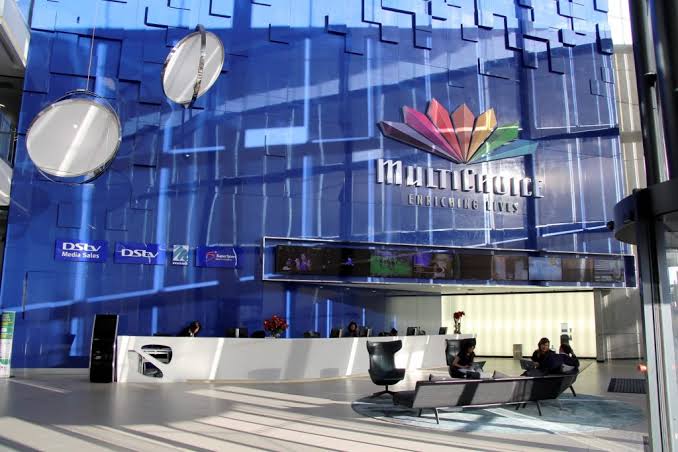The share price of South African pay-TV and technology company MultiChoice has dropped sharply after JP Morgan Chase & Co. lowered its rating.
At 12:27 GMT, its shares were trading down 11.73% after falling around 12% earlier.
Reuters says that the trading firm changed the rating of MultiChoice shares from “neutral” to “underweight.”
This means that the stock isn’t expected to do as well as other stocks in its coverage area in the next six to twelve months, which affects the price of the stock. So, this suggestion means that investors might want to think about selling their shares in the company.
Casparus Treurnicht, a portfolio manager at Gryphon Asset Management, said that the company was lowered because J.P. Morgan thinks it plans to “throw a lot more money at Showmax than what the market expects.”
The downgrade had a visible effect on the share price of MultiChoice during the trading session. The stock started at N3907 (ZAR94.76), but by 16:25, it had dropped a lot to N3401 (ZAR82.49), which is a drop of almost 13%.
Read also: Multichoice Accelerator Programme Expands To Eight New Countries
JP Morgan share rating reasons
JP Morgan downgraded MultiChoice because it believed the business would spend more on Showmax than the market expected. MultiChoice invested billions in Showmax to compete with Netflix, Disney+, and Amazon Prime Video. Showmax relies on local original material, although Netflix and Amazon Prime Video have been spending considerably on it.
MultiChoice also had a setback when it was found out that Amazon had hired one of its top leaders to run its business in South Africa. This loss of skill makes people worry about MultiChoice’s ability to stay ahead of the competition.
MultiChoice recently joined forces with Comcast’s NBCUniversal and Sky to form the new Showmax Group. Its goal was to improve its video streaming services. In this partnership, the Showmax app will be changed to use the same technology as Comcast’s Peacock streaming service, which has more than 20 million users in the US.
One reason MultiChoice lost R2.9 billion in the financial year that ended in March 2023 was that it put more money into Showmax. This is one reason why the company decided not to pay dividends to its owners.
The falling share price of MultiChoice and JP Morgan’s downgrade show how hard it will be for the company to survive in the changing pay-TV and streaming industries.
MultiChoice pushes into streaming as the DSTv model struggles
MultiChoice raises DSTV fees three times in Kenya within a year
On August 1, 2023, MultiChoice, the Kenyan operator of DStv and GOtv, will raise its prices. The third price adjustment in a year is expected to anger users who are already unhappy with the company’s pricing policy.
DStv Premium users now pay KES 9900 ($70) per month, up from KES 9500 ($68). Compact Plus members will pay KES 6200 ($44) per month, up from KES 5900 ($42). Family and Access package members will pay KES 1850 ($13) and KES 1300 ($9) each month, up from KES 1750 ($12) and KES 1250 ($8.8), respectively.
Price changes affect GoTV users too. SUPA will cost KES 1900 ($13.5), up from KES 1750 ($12), and Max will cost KES 1450 ($10.3), up from KES 1350 ($9.6).
After getting a lot of bad press for a year, MultiChoice raised prices again. Kenya’s MultiChoice has the most sports streaming, so people with DStv can’t watch live games. Kenyan customers are unhappy with the company’s high package prices and frequent price hikes.
MultiChoice Kenya said that these changes were made because of inflation and the cost of doing business. Customers doubt the reasons.




